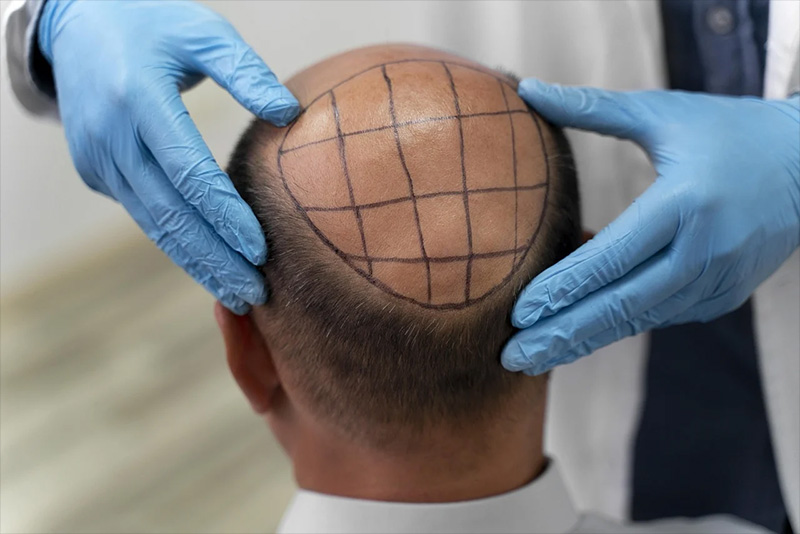Common Myths About Hair Transplants in Turkey: Separating Fact from Fiction

Turkey has emerged as a premier destination for hair restoration, drawing individuals from a diverse range of backgrounds who seek to enhance their confidence through effective and affordable treatments. This vibrant country offers cutting-edge medical techniques at a fraction of the cost typically found in other parts of the world, making it an appealing option for those grappling with hair loss.
However, as this trend continues to grow, numerous misconceptions about hair restoration procedures in Turkey still abound. It’s time to dispel some of the most prevalent myths surrounding this transformative experience, ensuring that potential patients are well-informed before embarking on their journey to renewed self-assurance.
Myth 1: “They’re Cheap, So They Must Be Poor Quality”
The Truth:
The lower price tag in Turkey is more about economics than a reflection of quality. Operational costs—from salaries to overhead—are generally lower compared to North America or Western Europe. Government incentives designed to bolster medical tourism also help keep prices competitive. Many of these clinics use state-of-the-art equipment and follow the same procedures you’d find in top Western facilities, including popular methods like FUE (Follicular Unit Extraction) and DHI (Direct Hair Implantation).
Myth 2: “Doctors in Turkey Aren’t Properly Trained”
The Truth:
Reputable clinics in Turkey are staffed by licensed, board-certified professionals. Plastic surgeons and dermatologists who specialize in hair restoration regularly attend international conferences, stay updated on the latest research, and follow global standards of care. You’ll even find surgeons who are active members of prestigious international hair restoration societies. Of course, it’s still wise to do your homework—always ask about a doctor’s qualifications and track record before moving forward with any procedure.
Myth 3: “You’ll Struggle with a Language Barrier”
The Truth:
Top-tier clinics understand that clear communication is crucial for patient comfort and safety. Many employ English-speaking staff and offer interpretation services for multiple languages. Plus, detailed pre- and post-op instructions—often in English—help ensure you know exactly what to expect. If you have any lingering questions, most facilities also provide thorough online and phone support so you can stay in the loop every step of the way.
Myth 4: “The Recovery Facilities Are Substandard”
The Truth:
In reality, many Turkish clinics go the extra mile when it comes to patient comfort. Modern recovery wards in JCI-accredited hospitals are common, and all-inclusive treatment packages often include hotel stays in well-rated accommodations. It’s not unusual for clinics to have specialized post-op teams and 24/7 support to ensure that patients heal well. Comprehensive aftercare instructions—in multiple languages—further reduce the risk of complications and help patients feel confident about the journey ahead.
Myth 5: “The Results Look Obviously ‘Fake’”
The Truth:
Poor results generally stem from inexperienced practitioners. When done by seasoned experts, hair transplants should blend seamlessly with your existing hair, reflecting natural growth patterns and facial proportions. Clinics worth your consideration will discuss your ideal hairline shape, the angle of graft placement, and long-term goals to ensure you end up with a look that doesn’t scream “transplant.” Always review before-and-after photos and patient testimonials to gauge a clinic’s aesthetic approach.
Myth 6: “They’ll Forget About You Once You’re Back Home”
The Truth:
Reputable clinics stay in close contact well after you return to your daily routine. They conduct follow-up appointments via video or phone calls, check in on recovery progress, and offer direct communication channels for any concerns that may pop up. Many also provide online resources, like detailed instruction guides or FAQs, so you’re never at a loss if a question arises months after your procedure.
Myth 7: “Medical Standards in Turkey Aren’t as Good as in the West”
The Truth:
Turkey has become a well-known leader in medical tourism for a reason: the standards are often on par with or surpass those in many Western nations. A number of clinics adhere to strict European guidelines and maintain JCI (Joint Commission International) accreditation, which is recognized worldwide. These facilities use FDA-approved equipment and undergo regular audits to ensure they meet international safety protocols.
Why Hair Transplants in Turkey Is on So Many Radars
One glance at social media, and you’ll see countless stories of people who found success by opting for a hair transplant Turkey has to offer. Besides budget-friendly pricing, the country’s robust medical tourism infrastructure makes the entire process—from arrival to aftercare—a relatively smooth experience. This level of convenience and affordability has put Turkey firmly on the map as a trusted option for those seeking quality hair restoration.
Practical Tips for a Safe and Successful Experience
- Do Your Research
Begin by conducting thorough research to ensure the clinic’s legitimacy. Start by verifying its accreditation through recognized organizations, which assures you that the facility meets industry standards. Delve into the reviews left by previous patients, paying attention to both the positive and negative feedback. Take the time to examine before-and-after galleries showcasing real patient transformations; this will give you a clearer idea of the clinic's skill and the outcomes you can expect. It’s crucial to select clinics that boast board-certified specialists, as well as those who practice transparent communication regarding fees and procedures.
- Ask Detailed Questions
When you contact a clinic, don’t hesitate to ask probing questions. Inquire about the specific techniques they employ in the procedures you’re considering, the recommended number of grafts based on your individual needs, and a breakdown of the total costs involved, including any additional fees. A reputable clinic will be more than willing to guide you through the entire process, explaining everything from pre-operative preparations to post-operative care, ensuring you feel informed and confident in your choices.
- Be Wary of Red Flags
Trust your instincts; if anything seems amiss, it’s worth exploring other options. Be particularly cautious of clinics offering extraordinarily low prices that seem too good to be true; this can often indicate hidden costs or compromised quality. Additionally, if the staff are evasive about providing the surgeon’s qualifications or the clinic's credentials, it’s a sign to proceed with caution. A reliable clinic will foster an open and comprehensive consultation process, ensuring you never feel rushed or pressured to make hasty decisions.
Final Takeaway
Despite the ongoing whispers and speculation, Turkey has consistently established itself as a premier destination for hair restoration treatments. The affordability of these procedures is often misleading—lower costs do not necessarily indicate inferior quality. In fact, they frequently stem from the country's advantageous economic conditions, which allow for competitive pricing without compromising on the quality of care.
By selecting a reputable clinic, thoroughly researching your options, and posing the right inquiries, you can not only embark on a transformative journey for your hair but also immerse yourself in a rich cultural experience while undergoing a successful procedure.





